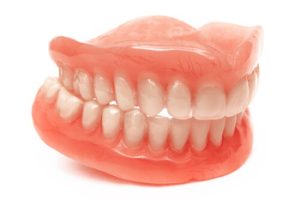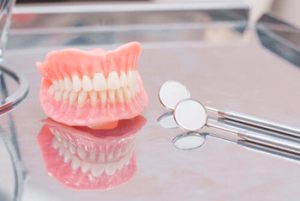Dentures play a vital role in restoring perfect smiles, but they may require adjustments over time to maintain a snug and comfortable fit. If you have noticed your dentures feeling loose or uncomfortable, a denture reline might be the solution. But how much does it cost to reline dentures? In this guide, we’ll explore the cost of denture reline, the types of denture reline, what affects pricing, and why relining your dentures is crucial for your oral health.
Why Do Dentures Need Relining?
Dentures need relining because, over time, the shape of your gums and jawbone changes, leading to an improper fit. Factors like bone loss, natural ageing, weight fluctuations, and everyday wear can cause dentures to become loose or uncomfortable. This can result in sore spots, difficulty chewing, and even issues with speech. A denture reline helps restore a snug fit, making your dentures more comfortable and functional. Regular relining also helps maintain oral health by preventing irritation and ensuring that your dentures typically fit properly for long-term use.
Types of Denture Relines: Which One Do You Need?
There are different types of denture relines, and the right one for you depends on the condition of your existing denture and your oral health needs.
1. Soft Denture Reline: Gentle and Comfortable
A soft denture reline is made from a pliable material, making it ideal for people with sensitive gums or those who experience discomfort from ill-fitting dentures. Soft relines tend to be more comfortable, but they require more frequent replacements compared to hard relines.
2. Hard Denture Reline: Durable and Long-Lasting
A hard denture reline uses a rigid material similar to the base of the denture. It provides a secure fit and lasts longer than a soft denture reline. While it is more durable, it might not be as comfortable for individuals with sensitive gums.
3. Temporary Reline: A Short-Term Fix
Temporary relines are often used when dentures typically cause severe irritation or sore spots. This is a cost-effective solution to allow your gums to heal before a properly fitted denture is created.
4. Partial Dentures Reline: Adjusting for Natural Teeth
If you have partial dentures, relining them ensures they fit properly while accommodating your natural teeth. The fit of your dentures is crucial in preventing discomfort and preserving your oral health.
How Much Does It Cost to Reline Dentures?
The denture reline cost can vary based on several factors, including the type of reline needed, the denture clinic you choose, and whether emergency repairs are required. Generally, options include:
- Soft Denture Reline: Recommended for added comfort and flexibility.
- Hard Denture Reline: Provides a more permanent and durable fit.
- Partial Denture Reline: Tailored to the specific materials and structure of partial dentures.
- Emergency Denture Repairs: Available for urgent cases requiring prompt attention.
Consulting with a denture specialist can help determine the most suitable option for your needs.
What Affects the Cost of a Denture Reline?
Several factors influence the price of a denture reline:
- Type of Reline Material: Soft relines use pliable materials, while hard relines use rigid materials, affecting costs.
- Condition of Your Dentures: If they are heavily worn or damaged, they may require additional adjustments.
- Denture Clinic and Location: Clinics in major cities may charge more than those in regional areas.
- Urgency of the Procedure: Emergency denture repairs tend to be more expensive.
- Additional Treatments: Costs will increase if further denture repairs or modifications are needed.
How Often Should You Reline Your Dentures?
You should reline your dentures every one to two years, depending on how your gums and jawbone change. However, some factors may require you to reline sooner, such as significant bone loss, discomfort, or ill-fitting dentures causing sore spots. Immediate dentures often need relining within a few weeks of placement, while full dentures may require adjustments every couple of years. Regular relining ensures a comfortable fit and prevents issues like irritation or difficulty chewing. If your dentures feel loose or uncomfortable, consult a dental professional to assess whether a reline is needed.
Denture Reline vs. Buying New Dentures: Which Is Better?
If your dentures aren’t fitting properly, you might wonder whether to opt for a reline or replace them with new dentures. Here’s a quick comparison:
- Denture Reline: A budget-friendly solution that extends the life of your existing denture.
- New Dentures: More expensive but provide a fresh fit and improved denture adhesive efficiency.
Relining is typically a more cost-effective solution, but if your missing teeth require a more permanent option, dental implants might be worth considering.
 How to Maintain Your Relined Dentures
How to Maintain Your Relined Dentures
Proper care can prolong the lifespan of your relined dentures. Here are some key tips:
- Use a Non-Abrasive Denture Cleaner: Harsh chemicals can wear down the reline material.
- Avoid Harder Foods: Sticky or tough foods can strain your dentures.
- Keep Up with Regular Check-Ups: A dental professional can assess the fit of your dentures.
Payment Plans and Budget-Friendly Solutions
Many denture clinics offer payment plans to help manage expenses. Some options include:
- DentiCare Payment Plans: A flexible option to spread the cost over time.
- Dental Payment Plans: Convenient and affordable ways to pay for your treatment in instalments.
Check with your denture clinic for available budget-friendly solutions to make dentures cost more reasonable.
Frequently Asked Questions
- How long does a denture reline take?
A denture reline procedure typically takes a few hours, but some clinics offer same-day services for minor adjustments.
- Can I eat normally after a denture reline?
Yes, but it’s best to start with softer foods while adjusting to the new fit before transitioning to harder foods.
- Is a denture reline painful?
A reline is generally simple. However, if you have sensitive gums, a soft denture reline might be a more comfortable option.
- How do I know if I need a denture reline?
If your dentures feel loose, cause discomfort, or you experience difficulty chewing, it may be time for a reline.
- Can relining fix all denture issues?
A reline improves fit and comfort, but if your dentures are severely damaged, you may need new dentures or a replacement.
Final Thoughts: Is a Denture Reline Right for You?

For a secure fit and long-lasting comfort, don’t ignore signs of ill-fitting dentures. Contact Advanced Dental Care at (02) 6188 7103 to schedule a consultation with our dental professionals and ensure your smile deserves the best care possible.
References
- Colgate. (n.d.). All about relining dentures. Colgate. Retrieved from https://www.colgate.com/en-us/oral-health/dentures/all-about-relining-dentures
- DentiCare. (n.d.). DentiCare payment plans. Retrieved from https://denticarepaymentplans.com.au/
- WebMD. (n.d.). Dental health and dentures. WebMD. Retrieved from https://www.webmd.com/oral-health/dental-health-dentures



 How to Maintain Your Relined Dentures
How to Maintain Your Relined Dentures




